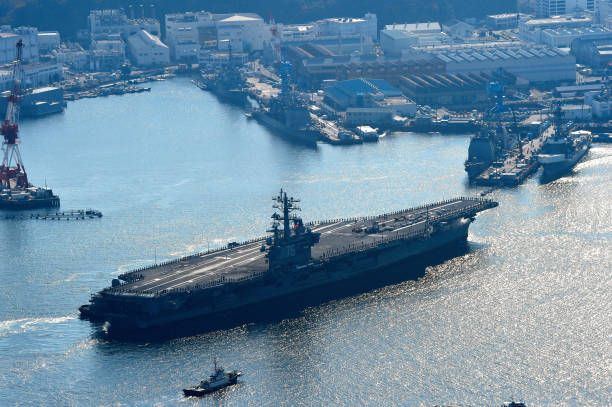Beijing Pushes For South China Sea Code Of Conduct Amid US Pressure

Chinese Premier Li Keqiang is urging for progress toward an official code of conduct between the Communist superpower China and the 10 members of the Association of Southeast Asian Nations (ASEAN). The 10 countries include Brunei, Cambodia, Indonesia, Laos, Malaysia, Myanmar, the Philippines, Singapore, Thailand and Vietnam. Australia may soon join the group but is currently a “dialogue member” of the association.
The huge Chinese military and naval forces could easily overwhelm even the combined forces of the current ASEAN members and that leaves the United States as the only recourse to obtain balance in the Asian waters, particularly the South China Sea.
China may be seeking a code of conduct agreement to control unsavory behavior in the seas, but the country seems unwilling to bend when it comes to disputed territorial claims. The buildup of military installations on Chinese built artificial islands and aggressive actions in the South China Sea point to that unwillingness.
U.S. Secretary of State Mike Pompeo expressed skepticism about China's sincerity in negotiating a code of conduct during a speech he gave Wednesday at the Hudson Institute in New York. He commented that China must be confronted and not coddled on its trade practices, its human rights record and its assertiveness in the South China Sea.
Pompano said, "We did everything we could to accommodate China's rise, in the hope that Communist China would become more free, market-driven and, ultimately, democratic." Pompeo added that the Trump administration would aggressively call out China for its actions, particularly on both the economic and security fronts.
As ASEAN member countries struggle to find a unified approach to deal with China’s claim to sovereignty over the bulk of the South China Sea, Japan and the U.S. have just concluded some bilateral exercises in the Philippine Sea.
Participating vessels included the aircraft carrier Ronald Reagan, the guided-missile cruiser Chancellorsville and the Akizuki class guided-missile destroyer Fuyuzuki from the Japan Maritime Self Defense Force. The drills were focused on ensuring freedom of navigation in the South China Sea and other key trade waters, but the flexing of the military muscle will send a strong message to Beijing.
Beijing can rightfully claim that neither the U.S. nor Japan has any sovereignty in the area and while it may show some resentment to Washington, more resentment will be directed at the Japanese because of the historical animosity between the two countries.
At the ASEAN summit Monday, Robert O'Brien, the White House national security adviser, read a message from Trump inviting the ASEAN leaders to "join me in the United States for a special summit" in the first quarter of 2020. China figures to be a primary focus if that summit takes place.
© Copyright IBTimes 2024. All rights reserved.





















